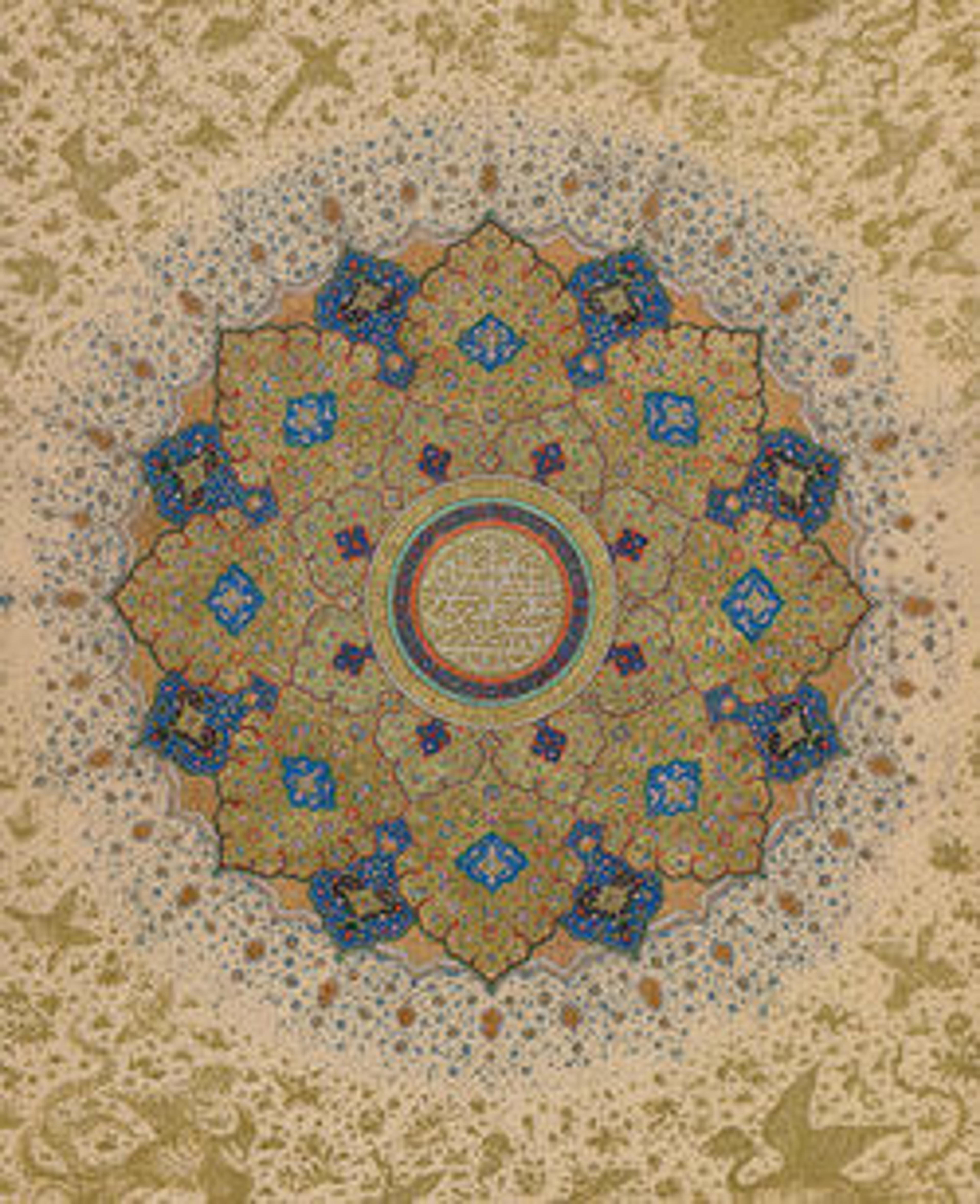Begging Bowl
This kashkul, or sufi begging bowl, is made from a section of coco-de-mer shell, covered with a silver frame. The nutshell of the coco-de-mer palm is native to islands in the Indian Ocean; such shells probably washed up on the southern shores of Iran. While Sufis disavow most material objects, the kashkul is one of the very few items that a dervish would keep on his person. This example could have functioned as a vessel for collecting alms, or a container for holding food and drink. An empty kashkul can also be interpreted as a metaphor for the voiding of the ego, which is required of a dervish before he can nourish himself with divine knowledge. Though such objects were originally created to be functional, later examples, such as this one, were fabricated and collected solely for their aesthetic merit.
Artwork Details
- Title: Begging Bowl
- Maker: Yar Muhammad
- Date: dated 1130 AH/1717–18 CE
- Geography: Attributed to Iran
- Medium: Coco-de-mer shell, silver and gilded silver; pierced and engraved
- Dimensions: [Not including chain]
H. 5 1/2 in. (14 cm)
W. 12 1/8 in. (30.8 cm)
D. 6 9/16 in. (16.7 cm)
Wt. 31.1 oz. (881.8 cm) - Classification: Metal
- Credit Line: Rogers Fund, 1909
- Object Number: 09.202.2
- Curatorial Department: Islamic Art
More Artwork
Research Resources
The Met provides unparalleled resources for research and welcomes an international community of students and scholars. The Met's Open Access API is where creators and researchers can connect to the The Met collection. Open Access data and public domain images are available for unrestricted commercial and noncommercial use without permission or fee.
To request images under copyright and other restrictions, please use this Image Request form.
Feedback
We continue to research and examine historical and cultural context for objects in The Met collection. If you have comments or questions about this object record, please contact us using the form below. The Museum looks forward to receiving your comments.
